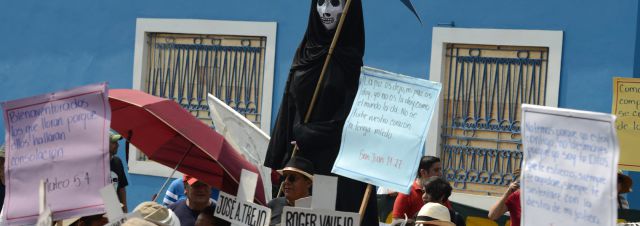
"Everyday in Honduras, human rights defenders face killings, threats and criminalisation. The Honduran authorities must show genuine political willingness to confront this crisis" urged the Observatory for the Protection of Human Rights Defenders (an OMCT – FIDH partnership), on the occasion of the publication of the report on the international fact-finding mission carried out in the country within ProtectDefenders.eu, launched on December 1st in Panama City, before the Inter-American Commission on Human Rights (IACHR).
The predicament of human rights defenders in Honduras has received a great deal of international attention in 2016, following the murder of Berta Cáceres, an emblematic Lenca indigenous defender. This crime is just the tip of the iceberg; the high levels of violence directed against defenders in Honduras have made it one of the most dangerous countries in the world for human rights defence.
Since 2001, 17 defenders have been murdered, although they were beneficiaries of IACHR precautionary measures – an average of one per year. Since May 2015, the Observatory has documented 16 killings of human rights defenders – almost one per month. These figures clearly demonstrate that the situation is becoming more acute.
Attacks against defenders tend to go unpunished, largely due to inefficiencies in the administration of justice as well as a number of other structural factors. Meanwhile, there have been a great many incidences of defenders being criminalised, and the judicial system has shown remarkable diligence in pursuing these cases. According to IACHR, since 2010 there have been 3,064 cases in Honduras where human rights defenders have been criminalised as a means of intimidation.
The report concludes that Honduras needs a clearer and more protective national framework, one which fully recognises the human rights of the rural population, indigenous peoples and the LGBTI community. This would improve the working environment of defenders of these rights, and would allow them to enjoy a greater degree of legitimacy and visibility, especially in situations of conflict over natural resources and hetero-patriarchal stereotypes respectively.


